- Home
- Lisa Gardner
Maggie's Man: A Family Secrets Page 6
Maggie's Man: A Family Secrets Read online
Page 6
“Because you don’t want to hurt my feelings?”
“Exactly!” She beamed at him with approval.
“Maggie, what do you do for a living?”
The smile faded. She appeared puzzled. “I’m a marriage counselor—”
“What? I thought you were a court clerk.”
“A court clerk? Why would I be a court clerk? I’m a marriage counselor.”
He groaned in dismay. “Of all the people in that courthouse, I kidnapped a shrink.”
“I beg your pardon! I will not be belittled by a term like ‘shrink.’ Do you have any idea how important marriage counselors are? Do you have any idea of just how difficult it is? What it’s like to spend your days listening to people say how much they love each other and their children, and then proceed to scream at each other over everything from how she spends all the money on furniture to how he always leaves the toilet seat up? It’s . . . it’s . . . hard.” Abruptly, her voice broke. She looked away, appalled.
Nerves, she told herself. Delayed shock and extreme fear. But she knew, of course, that it was much deeper than that.
She’d been very weepy lately and for no reason that she could understand. She hated crying. Crying didn’t solve anything, as her father had always told her. But for some reason, she found herself on the verge of tears a lot these days. Once, she’d been in her office, listening to a young couple explain that they really did want to save their marriage because while they knew they had their differences, they did agree that they loved their children more than anything and they would do everything in their power to maintain their family for their kids.
And all of a sudden, Maggie had had to ask them to excuse her for a moment because she knew she was going to cry. She’d hustled the startled people back into the waiting room, barely getting her door closed in time, and then she’d just stood in the middle of her office and bawled like a baby. She was twenty-seven years old and all she could think was had her parents ever talked about her like that? Had they ever loved her? Had they ever thought of her first? Had they ever spoken of her with pride or affection? Stephanie had never once said, “I love you.” Neither had her father.
And sometimes late at night, she found herself holding the heart pendant around her neck and thinking of her dad. Maxmillian. Maxmillian the Chameleon. Even after all these years, she knew so little about him. Even Lydia hadn’t understood her son. When she spoke of him, she recalled his high school days as class president, Eagle Scout and student voted most likely to succeed. No one understood the man he’d become. Why he’d loved the women he’d loved, why he’d traveled like he’d traveled. He’d been, and then he was gone, and sometimes Maggie felt this huge, gaping hole she just couldn’t fill.
All she had left was a cheap gold locket and a silly little girl’s secret she’d still never divulged because it was the only part of her father’s life that was uniquely hers.
People just came and went in her life. She didn’t know how to make them stay. She didn’t know how to make anyone stay.
“Hello. Shopping!” Cain abruptly announced. He turned to her with a triumphant smile that abruptly faded away. “Are you . . . are you all right?”
She gazed at him helplessly, pinned by those piercing green eyes. Don’t look at me like that. Don’t ask me that kind of question. She glanced away, clutching the door handle as if that would give her strength. “I’ve . . . I’ve just been kidnapped,” she whispered at last. “How all right should I be?”
“Of . . . of course.” But she could still feel his gaze upon her back. The silence stretched in the tiny cab. She didn’t know why he didn’t snarl or growl, why he didn’t act a little more mean.
Finally, he turned away; then she realized that Cain was now pulling over the truck. She glanced up to see a row of mud-splattered cars and pickup trucks, and the bright orange Caterpillars of a work crew excavating a broad space for a new housing development.
“What?” she asked, bewildered.
“New truck.”
“No!”
“Yes.” He turned their truck in at the beginning of the line of vehicles. She glanced toward the construction crew, waiting for one of them to notice. They were intent upon their work.
Cain opened the door and hopped out, yanking her with him. She tumbled out behind him with less grace.
“You can’t do this,” she whispered urgently, tugging in vain on her half of the handcuffs. “Stealing the first truck was bad enough.”
“Keep your head down.”
“Are you listening to me?”
“Of course I am. Stealing is wrong, bad, evil. I’ve broken one of the commandments and I’m not a nice person. Did I miss anything?” His tone was sardonic as he slowly and methodically dragged her toward his intended prey.
“Haven’t you looked at the construction crew?” she continued desperately. “These people are hard at work to earn paychecks to support their families. You can’t steal their only vehicle while they try to earn a living like that. It’s just . . . just—”
Cain whirled on her abruptly and the cold, hard look in his eyes killed the words in her throat. Oh, she’d gotten to him all right, and now she wished she’d never opened her mouth.
“Shut up. I know what I’m doing, Maggie. Don’t ever think I don’t know it’s wrong. Don’t ever think I don’t have regrets. But I’m ready to live with them and you’re just along for the ride. Got it?”
Weakly, she nodded, still unable to breathe. Her stomach was suddenly tight. Her limbs quivered with an emotion she didn’t completely understand. He seemed fierce enough to tear up the world and strong enough to do it.
He straightened, appearing uncomfortable. Then with another scowl, he turned back to the trucks.
He popped open the door of a little blue Toyota truck. “Ladies first.”
He turned back toward her. “Come on, Maggie,” he said and she caught the edge of warning in his voice.
She stepped forward without another word and slid into the vehicle.
With the gun tucked into the waistband of his jeans, Cain lowered his head beneath the dash and got on with the business of hot-wiring a car. The car roared to life in under sixty seconds. The man was amazing. She couldn’t even program her VCR and he made stealing a car look as simple as turning on a flashlight.
“Here we go,” he announced grimly and swung the truck back onto the road.
The orange Caterpillar froze. The men glanced over; then one of them did a double take. Maggie didn’t have to roll down her window to hear the man cry, “Hey, that’s my truck!”
Cain said nothing, but his face was grim. He floored the gas pedal and they zipped away. She glanced back at the poor construction crew, the men waving their arms frantically for the vehicle to stop. The men quickly disappeared, lost in the distance. In addition to hot-wiring cars, Cain seemed to have a penchant for driving them fast. Where did men learn that kind of thing, anyway?
She looked at him with open reproach. “Do you think this vehicle is insured?”
“I don’t know.” His voice was clipped.
“I hope it is insured. I don’t think that man has much money.”
Cain’s grip tightened on the wheel.
“It must be very hard, working like that to support your family,” she continued relentlessly, “and then through no fault of your own, having your truck stolen. What do you think he’ll tell his wife?”
“You don’t even know if he has a wife.”
“He looks like he has a wife. Probably two kids, too. Cute little kids who used to like to ride in the back of the truck with the sun on their cheeks.”
“All right!” Cain threw up his hands. “He’ll get it back!” he exclaimed harshly. “We won’t hurt the vehicle—we won’t take it far. End of day, he can still drive his truck home to his wife and two kids and one hound dog. My God, you are like the Betty Crocker version of the gestapo!”
Maggie finally relaxed. “Yes, but it’s expensive to rep
lace an automobile.”
Cain appeared to grind his teeth, his gaze locked on the road. “You know, I’m not as big a cad as you think, Maggie. I’ve gone hungry. Where I grew up, dinner was what you could shoot or pick off a bush.”
She looked at him expectantly but he didn’t say anything more on the subject. His attention focused one hundred percent on the road.
“Look for a map,” he ordered curtly.
But then it became unnecessary. Like a miracle, a road appeared on his left, forking out. He didn’t ask, he didn’t debate. He seized it as a gift from God and picked up the pace. That road led to another, then another. If something appeared, he took it, and soon they were so lost they couldn’t even find themselves, let alone anyone in high pursuit. He settled down to drive and the fields took on a green blur around him.
• • •
Cain had been eighteen when he’d first met Kathy. Eighteen and fresh from Idaho, a hillbilly former survivalist who wanted desperately to join mainstream society. Kathy hadn’t laughed at him or made him feel self-conscious. Instead, she’d seemed genuinely intrigued by his blunt statements and matter-of-fact approach to life. If people wanted platitudes, they didn’t hang out with Cain.
They’d been just friends in the beginning, Cain too preoccupied with carving out a life to think of anything more. But then things had slowly slid into place. He’d enrolled in Portland State and discovered that the formulas, theories and music that so often haunted his mind suddenly had meaning. His professors didn’t greet him with raised brows or dismissive gestures as his father had done. Instead their eyes widened and they demanded to hear more.
Cain had always known he was different. Most people thought in words; he had a tendency to think in numbers or notes. He was most intrigued by the number eight, of course. It was the basis for everything. Chess, mathematics, music, even the periodic table. Nature had recurring themes—life truly seemed to favor the cycle—and inevitably, the basis of such cycles was the number eight. He’d once tried to speak to his father about it. Zechariah had said harshly, “Chess isn’t about numbers, boy. Who cares about numbers? Chess is all about killing the king—that’s what you should care about. We are the last of the Minutemen, the last of the true patriots. We must safeguard freedom against the ZOG and don’t you forget it.”
Cain had never had anything in common with his father.
But at Portland State, he’d suddenly belonged. He’d made friends for the first time. At least he’d thought they were friends. Later, he’d had cause to question everything.
He’d made it through college in three years, taking classes year-round and discovering his true calling. Graduation had given him more job offers than he’d known what to do with and suddenly life had been on track.
And somehow, he and Kathy had become more than friends. He didn’t remember the exact moment, anymore. He didn’t remember the first date. He remembered other things instead. For his twenty-third birthday, she’d given him a marble chess set and challenged him to a game of strip chess. For each piece you lost, you had to remove a piece of clothing. Kathy had been lousy at chess and he’d had her naked and laughing in no time. He remembered the time she’d served him French toast wearing nothing but a pair of red high heels.
She’d been a generous woman, warm, intelligent and funny. She’d made a small home for him and given him laughter when he hadn’t laughed since his mother had died.
He wished sometimes he’d had something to give her in return. Maybe it was the way he thought. Maybe it was because he’d spent so much time alone after his mother’s death, but he didn’t fit like other people fit. Even in the middle of a room filled with people, he was somehow separate, apart, isolated. Kathy complained that he didn’t seem to need her. He’d answered that he didn’t understand why she would want that. People should be with each other out of choice, not need.
She’d become more distant after that, veering toward little games and petty displays he didn’t know how to respond to. He couldn’t play the jealous type; he couldn’t pour out his soul as she seemed to want. If she didn’t want to be with him anymore, he accepted that. It was her choice to move on, and he honestly wished her well.
He would miss her, but that was life—cause and effect, choice and consequence. He accepted that. He valued his independence. And if he lived alone and died alone because of it, he was willing to pay that price. Choice and consequence.
When Abraham had abruptly appeared in Portland and instantly swept Kathy off her feet, Cain had figured it was for the best. Kathy had seemed happy. She’d always liked men with an edge and Ham certainly had that. But Ham had also seemed to have turned over a new leaf. He’d claimed that he’d left the militia movement and their father’s racism behind. Cain had figured that must be the case, for Kathy was Jewish, something that Ham never would have tolerated before.
Cain had never suspected a thing. Down to the last moment, he’d never suspected the truth about his brother.
I knew you were many things, Ham. But a murderer? A murderer?
God, how could he have not seen that coming? How could he have let Kathy pay for his mistakes with his family? For not realizing just how deep Ham’s hatred ran, just how dangerous Ham had become?
He’d tried to tell everyone at the trial. He’d testified on his own behalf, telling the judge, the jury and Kathy’s family what Ham had done. But the weapon was Cain’s hunting knife with Cain’s fingerprints. Then Ham got on the stand, calmly swore on the Bible he held sacred and proceeded to tell the room how he’d witnessed Cain’s attack on Kathy in a jealous rage. And Cain had no alibi to back up his version of events.
It had been over after that. No one believed him. Not even Kathy’s brother, Joel, whom he’d considered a good friend, not his boss, not his coworkers, not anyone. Cain had no proof on his side and no one was willing to listen to him otherwise. They all just said they never had felt very close to him, they never had felt as if they truly knew him. No one believed in him at all.
He stood alone. He went to jail alone. He held the truth alone.
And the first six months in prison, he’d listened to the cell doors slamming shut every night, kchink, kchink, kchnk, and dreamed of Kathy calling his name.
• • •
“Cain?”
He was so disoriented, it took him a moment to realize the voice wasn’t in his head.
“Cain?”
He forced himself back to reality, blinking his eyes and peering belatedly at his passenger. She was chewing her lower lip and staring at the gauges. “I think we get to walk soon,” she said.
His gaze swung to the gas gauge. It already rested on Empty. “I am having such a bad day,” he muttered at last.
“Really?” Maggie chimed. “Mine’s been rather nice.” She smiled glumly.
“Try to locate us on the map again. We either find civilization or take up hiking.”
Maggie retrieved the map, her mind moving quickly. She thought they were still heading toward Tigard and Tualatin. What if they did run out of gas? Then they’d walk. Could she run for it? Somehow, she didn’t think he’d unhandcuff her to walk. Most likely, she’d be glued to his side. But what if someone came along in a car? He wouldn’t want to arouse suspicion by having someone see them handcuffed together. Maybe he’d undo the handcuffs then.
She could try running for it. She wasn’t exactly dressed for the occasion, but maybe a car would spot her and offer help.
Or maybe Cain would pull out his gun, shoot the other person and steal yet another vehicle. He hadn’t actually done anything violent yet, but he’d gone to prison for murdering his girlfriend. That seemed to suggest he could be lethal when provoked.
Oh God. She started searching in earnest for their road on the map.
“Okay,” she said after a moment. “I think we’re almost in Tualatin.”
She directed him across another few streets, down 99W, across another few back roads and then they were in Tualatin, right
off I-5. The library, Safeway, and Kmart were on their left. Fred Meyer appeared on their right. Banks and liquor stores. Surely there had to be a gas station somewhere.
“We’re ditching this vehicle,” Cain said and whipped them into the long strip mall with Kmart.
“And stealing another,” she filled in morosely.
“I promised the last person would get his car back and Idaho is a long walk.”
“I don’t think returning someone’s stolen car is considered a good deed if you just turn around and steal another.”
“Any better ideas?”
“Turn yourself in? Let me go?” She smiled hopefully. “I’m just going to slow you down, I’ve never been particularly fond of Idaho, and you still don’t know how to manage the bathroom breaks.”
He turned into the parking lot, shut off the engine and looked at her. “True. Let’s think about this.” He gazed at her steadily, his green eyes sharp. After a moment, he nodded to himself. That worried her.
“How much money do you have?” he quizzed.
She instinctively clutched her purse against her.
“Now, Maggie, we’ve come this far together—don’t back out on me now.”
“I’m not exactly rich,” she half lied, hoping that might sway him.
“Consider it a loan.” Cain wiggled his fingers impatiently. “How much?”
She reluctantly opened her purse and took out her billfold. At least she never carried much cash on her. “Five dollars and . . . sixty-seven cents.”
“Five dollars?” he said incredulously. “Five dollars! You’re walking around with only five dollars on you? How are we going to outrun the entire state police force with five dollars?”
“I didn’t ‘walk around’ with only five dollars in my purse,” she said stiffly. “I had fifteen dollars. You already spent ten.”
“Maggie, you can barely fill a gas tank with fifteen bucks.”
“I know. And I took the bus.” She folded her hands on her lap very prim and proper. “Besides, it’s not safe for a lone woman to travel with too much cash.” And then her blue eyes did flash piercing flames at him.

 Find Her
Find Her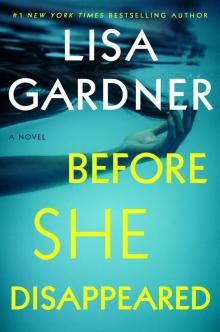 Before She Disappeared
Before She Disappeared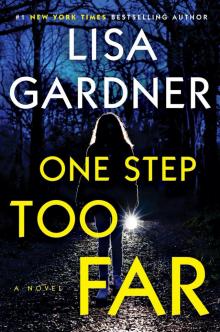 One Step Too Far
One Step Too Far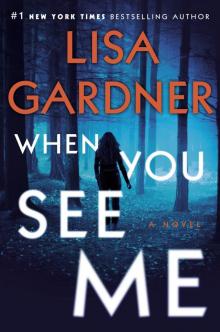 When You See Me
When You See Me Never Tell
Never Tell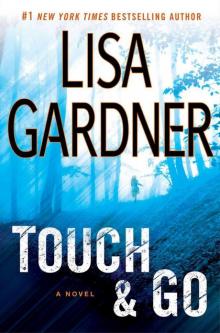 Touch & Go
Touch & Go The Survivors Club
The Survivors Club MacNamara's Woman
MacNamara's Woman Love You More: A Novel
Love You More: A Novel Gone
Gone The Perfect Husband
The Perfect Husband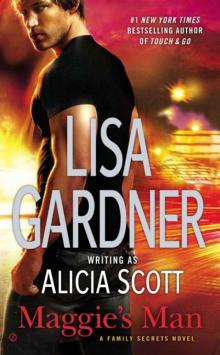 Maggie's Man: A Family Secrets
Maggie's Man: A Family Secrets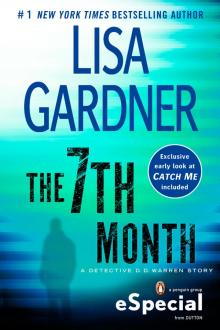 The 7th Month
The 7th Month The Neighbor
The Neighbor Hide
Hide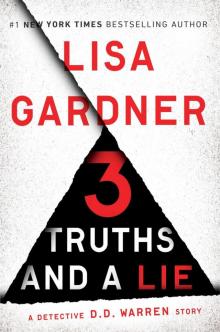 3 Truths and a Lie
3 Truths and a Lie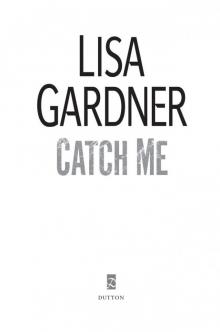 Catch Me
Catch Me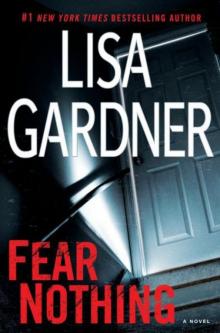 Fear Nothing: A Detective
Fear Nothing: A Detective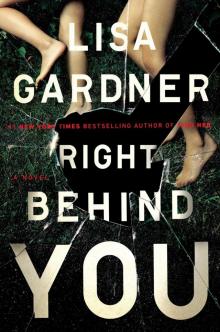 Right Behind You
Right Behind You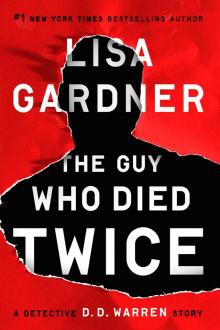 The Guy Who Died Twice
The Guy Who Died Twice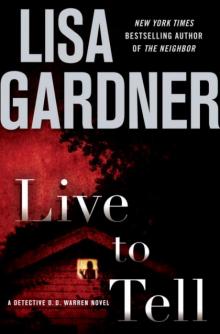 Live to Tell: A Detective D.D. Warren Novel
Live to Tell: A Detective D.D. Warren Novel Live to Tell
Live to Tell Maggie's Man: A Family Secrets Novel
Maggie's Man: A Family Secrets Novel The Other Daughter
The Other Daughter Alone
Alone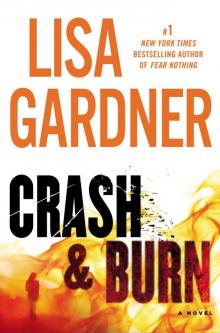 Crash & Burn
Crash & Burn The Detective D. D. Warren Series 5-Book Bundle
The Detective D. D. Warren Series 5-Book Bundle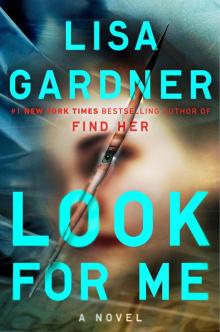 Look for Me
Look for Me Love You More
Love You More The FBI Profiler Series 6-Book Bundle
The FBI Profiler Series 6-Book Bundle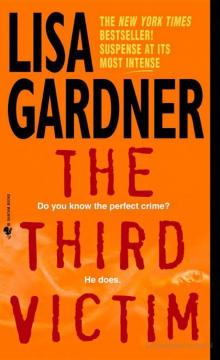 The Third Victim (Quincy / Rainie)
The Third Victim (Quincy / Rainie) Say Goodbye
Say Goodbye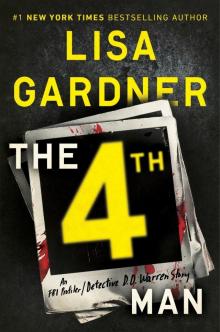 The 4th Man
The 4th Man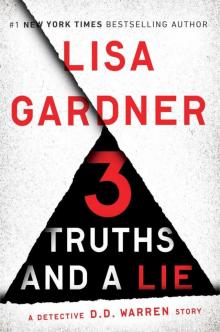 3 Truths and a Lie: A Detective D. D. Warren Story (Kindle Single)
3 Truths and a Lie: A Detective D. D. Warren Story (Kindle Single) Brandon's Bride
Brandon's Bride